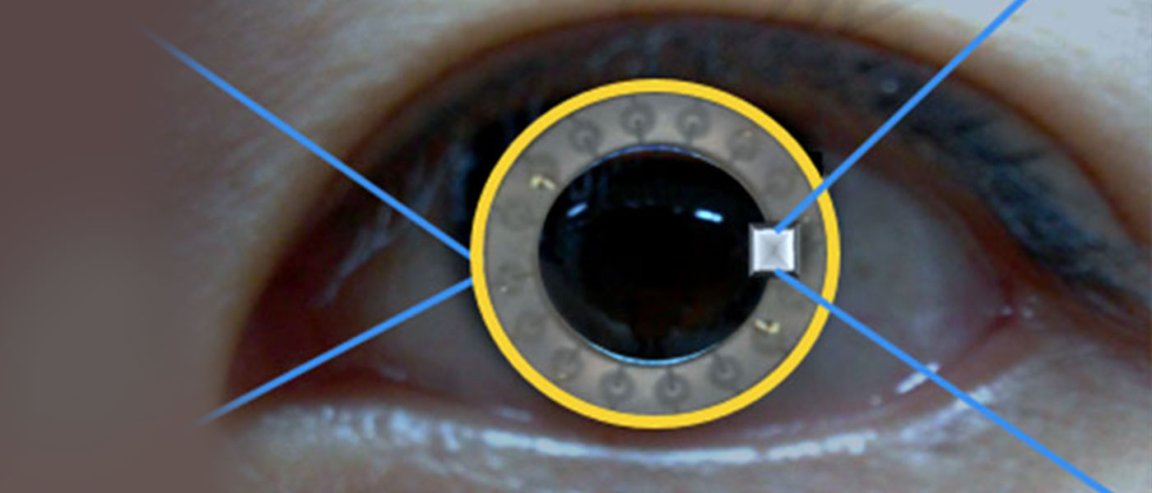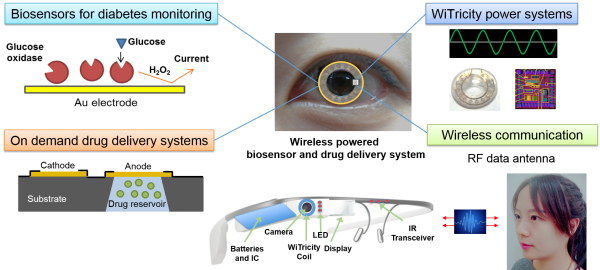
An Eye On Health
Researchers from the Pohang University of Science and Technology in Korea (POSTECH) found a new way to monitor diabetes and deliver medication…through a smart contact lens-eyeglass combo.
This could mean the end to painful daily finger pricks for blood glucose monitoring, while ushering in a much more efficient way of treating diabetes-induced eye diseases, such as diabetic retinopathy and glaucoma.
The package comes with eyeglasses that wirelessly power and communicate with a circuit-lined, drug-releasing contact lens that a patient could wear for up to a month.
Tests have shown that the glucose concentration in tears could be an alternative sample for blood sugar levels. The smart contact lens-eyeglass could also continuously monitor glucose levels in diabetics, and alert them when their blood sugar is spiking. It could also be a conduit for therapy for diabetes-related eye disorders.

How It Works
The lens has two soft silicone hydrogel layers that have a ring-shaped circuit in the middle. The circuit has a glucose sensor, microcontroller chip, drug-delivery system, and an inductive coil to receive wireless power from the glasses. These innovative components are particularly helpful in cases where tear glucose levels rise, as the sensor’s current output increases and the chip relays this information wirelessly to the eyeglasses.
The patient can then use voice commands to tell the eyeglasses to send a drug-releasing signal to the chip—the chip then sends an electrical current into one of ten drug-containing channels, which are covered with a gold electrode membrane. The current dissolves the membrane and releases the dosage.
Scientists say that further down the road, a control circuit on the eyeglasses could make the process automatic, deciding on its own when drugs are needed.
Apart from diabetes, researchers say the smart contact lens could also be used to treat other eye diseases and infections.